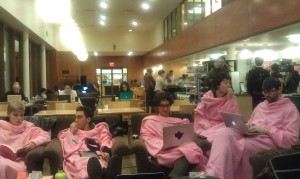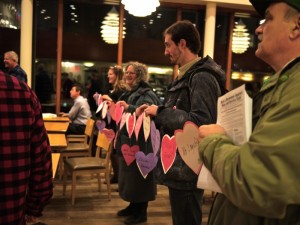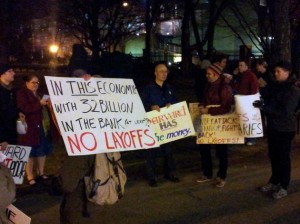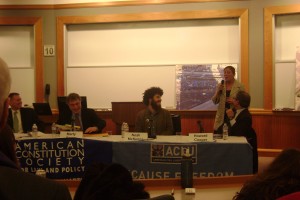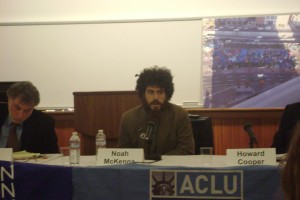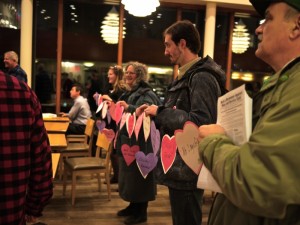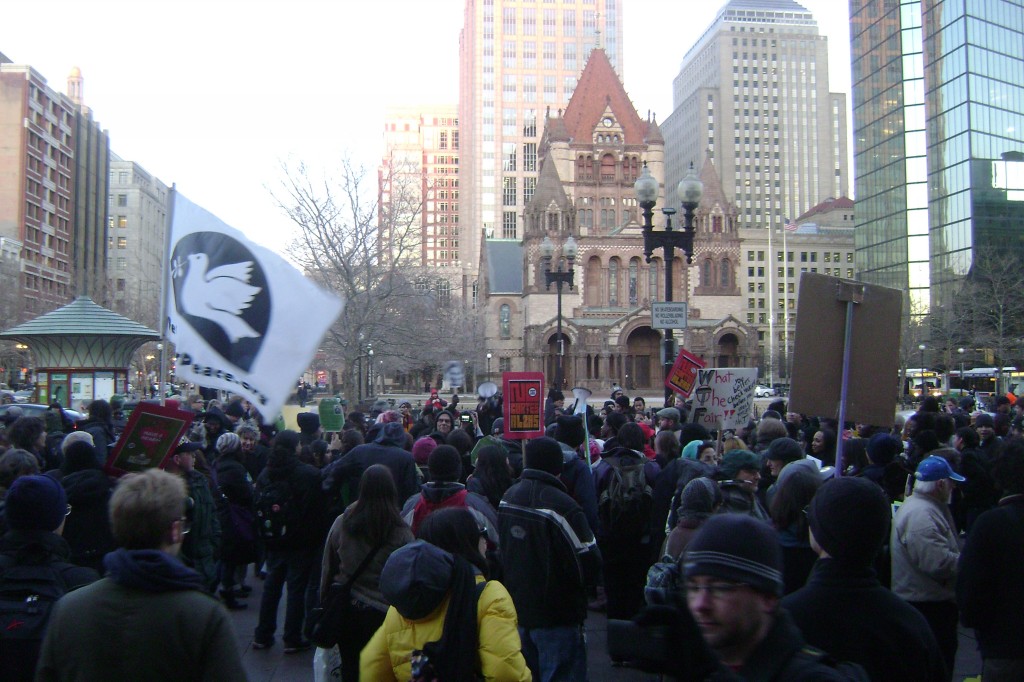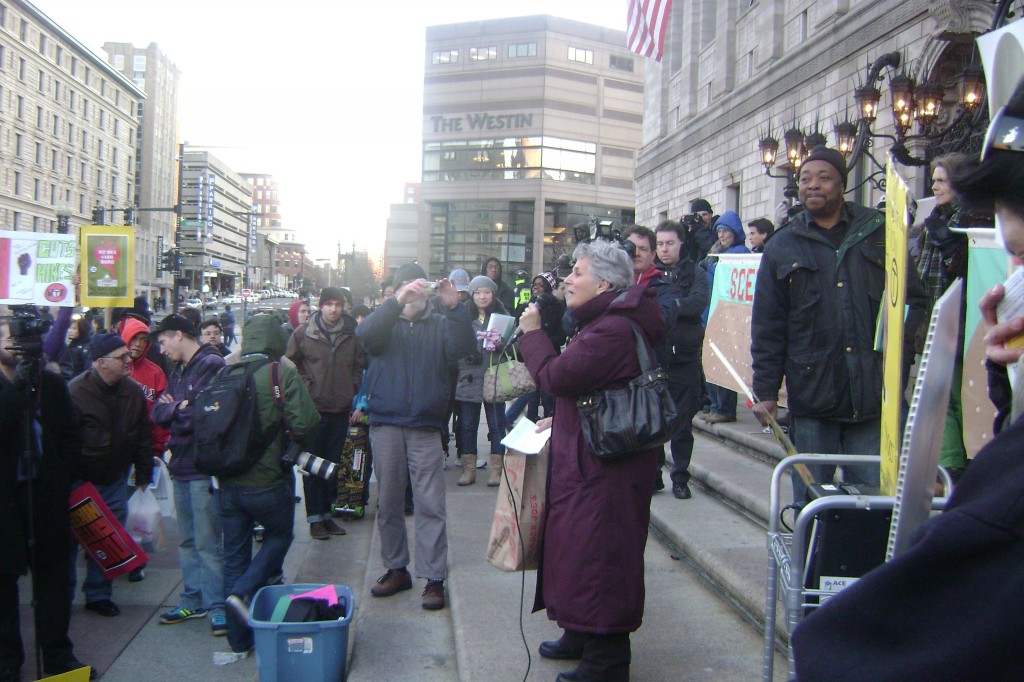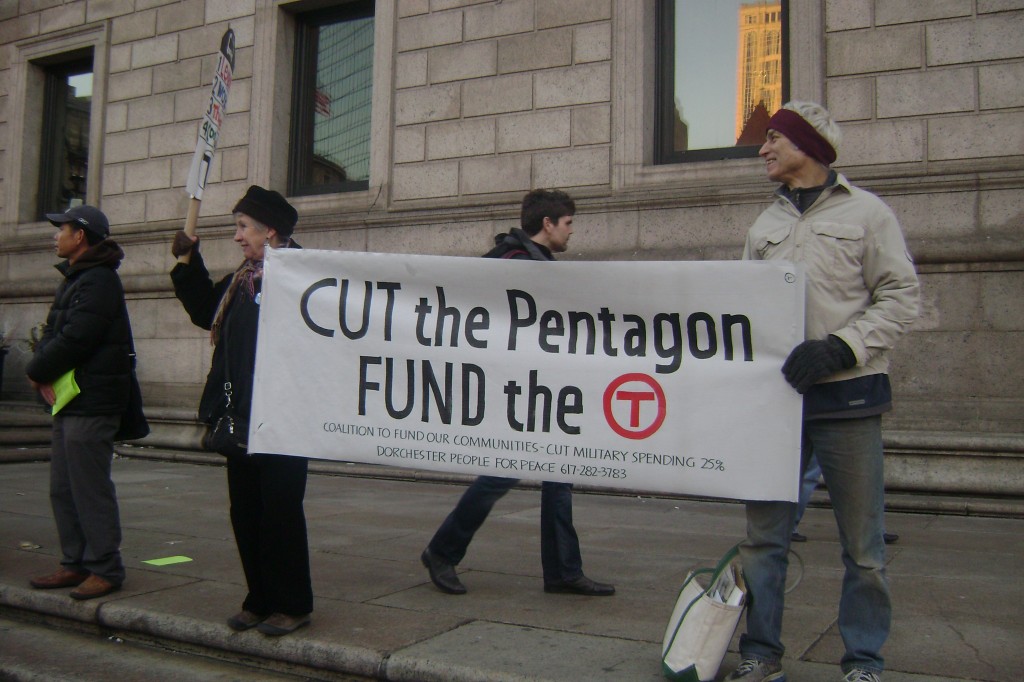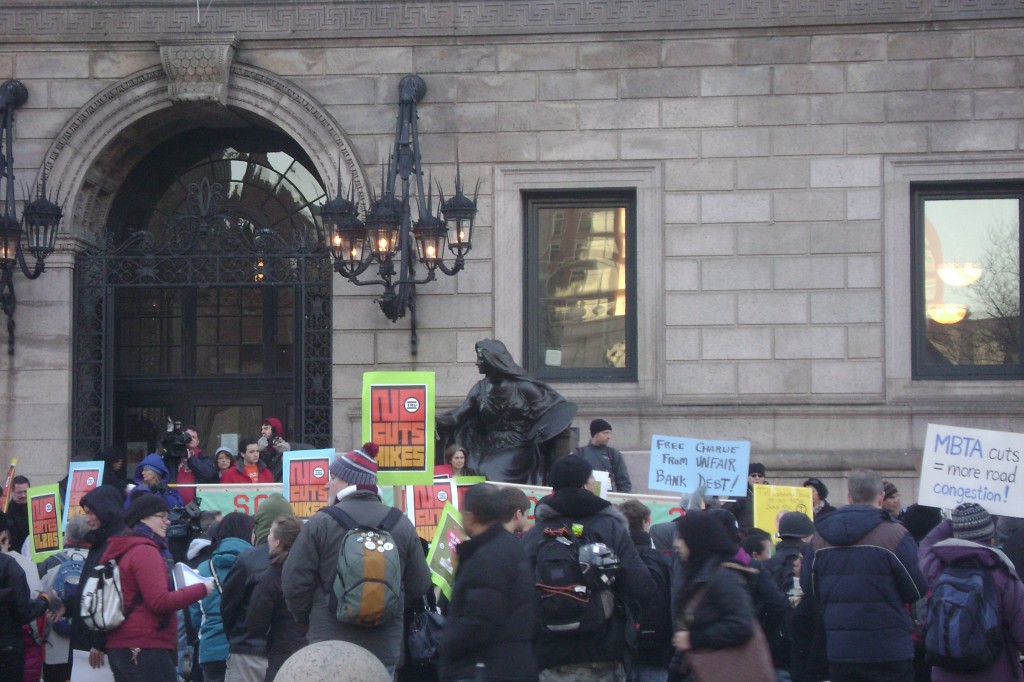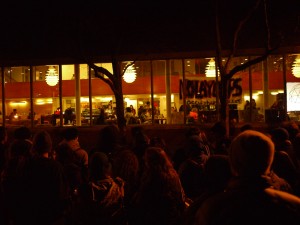The New Harvard Library Working Group led an autonomous action on Sunday Feb. 12, occupying Lamont Library during the last hour of the Students Occupy Summit. The New Library Occupation then connected with the Student Summit via livestream, to the enthusiastic support of the Summit participants, who marched to the library and chanted outside its windows.
For the next few days, the Occupation held Think Tanks that attracted students, library employees, and university officials. Think Tank discussions ranged from “What is a library?” and “Power and the University” to “Strategies for the Occupy [Harvard] Movement.” All were recorded and are available on Occupy Harvard’s website. Numerous actions were brainstormed in those discussions, including an initiative to document and archive library workers’ experience in the library. One of the think tanks was attended by a member of the Harvard Library Innovation Laboratory (an independent project of the Law Library) — he suggested a collaboration between students, library employees and the Innovation Lab to envision a restructuring of the library system that draws on the experience of employees and library users, instead of on (three!) outside consulting agencies.
The Occupation’s program also included skill shares and knowledge shares, a teach-in on challenging institutional hegemony, and a nonviolence training workshop. At night, Occupiers watched silent films, welcoming late-night library patrons to stop by and share food and films. The occasional Absurd Theater Workshop with university police was also a special treat. The Occupation was watched by as many as four city policemen and university guards at any given time,prompting some nonviolent resistance against spontaneous rules on sleeping “equipment.”
On Thursday, workers, students, and alumni rallied to protest the university’s top-down, secretive approach to the restructuring of the library. Cambridge City Councillor Leland Cheung spoke at the rally, letting the protesters know that the City of Cambridge stood with them. Protesters decried Harvard’s plan to indiscriminately buy out long-time, older workers, calling against layoffs in Harvard’s libraries.
This targeted occupation ends tonight, Friday, at 10pm. Before it leaves the library, Occupy Harvard is holding a phone-in to contact university donors and inform them about how their funds are being used by the Administration. The Occupy is also offering two Think Tanks, a nonviolence training, and a Library Assembly. Future actions are in the planning stages. To learn about what comes next, follow Occupy Harvard on their social media channels and see www.occupyharvard.net.





